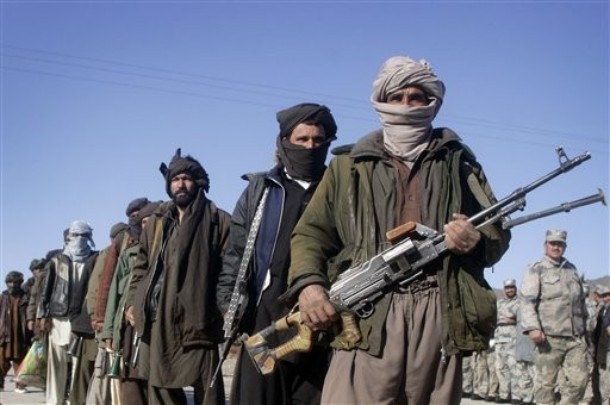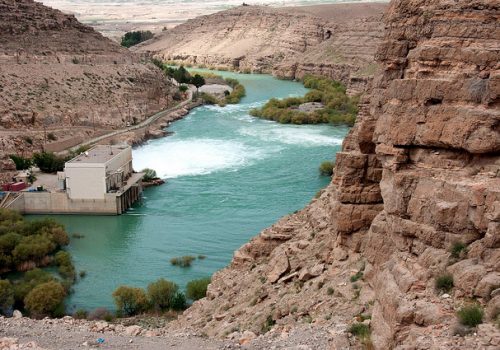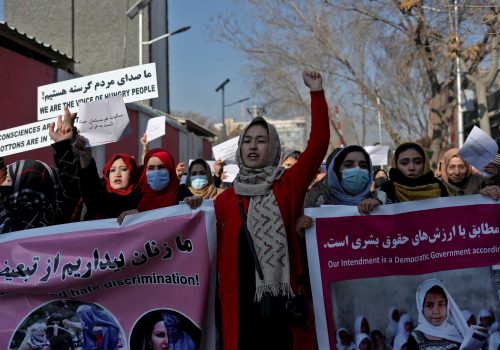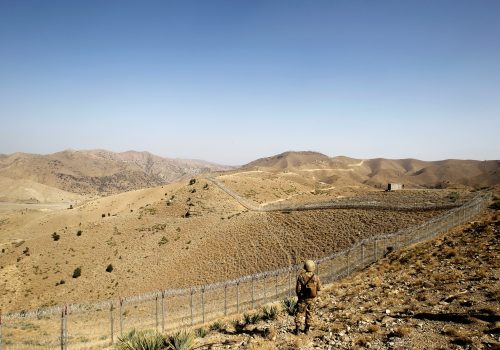On February 11, 2022, US President Joe Biden issued an executive order paving the way for the splitting of $7 billion in frozen funds controlled by the former Islamic Republic of Afghanistan, which collapsed in August of 2021 and was replaced by a new, Taliban-led regime. According to the order, the money is to be split down the middle between a trust fund intended to deliver the assets to Afghanistan, and Americans seeking damages for alleged Taliban-sponsored and sanctioned terrorist acts, notably the 9/11 attacks in 2001.
This move has caused significant controversy. While critics say that it collectively punishes Afghans–already enduring an intersectional humanitarian, financial, and economic crisis–for the 9/11 attacks and other violence tied directly or loosely to the Taliban, supporters argue that, in addition to compensation for 9/11 and other Taliban-related terrorist acts, it is the only way to unfreeze any of the money, and without such a move no amount would make it to ordinary Afghans at all.
South Asia Center experts give their analyses of the situation:
The funds belong to the Afghan people as represented by the overthrown Islamic Republic.
The motivation behind President Biden’s decision, which attempts to balance conflicting demands and get assistance to the Afghan people, is commendable. However, splitting the $7 billion in foreign reserves of the Islamic Republic of Afghanistan held in the United States, and returning $3.5 billion in aid, is not the way to do it, and is likely to please few and anger many. President Biden quite rightly rejects the Taliban demand that the funds simply be released to the Afghan central bank and thus to Taliban control. But implementing his decision on assistance would be time consuming, given the need for action by US courts on carving out half the reserves for assistance instead of holding all the $7 billion pending claims by 9/11 victims. None of the $3.5 billion in aid would reach Afghanistan until well after the country has moved beyond the current winter crisis. In addition, Implementation would be fraught with complicated issues of governance, legality, and administration revolving around what will inevitably be an imperfect effort to provide meaningful assistance while keeping funds out of Taliban hands.
More fundamentally, Biden’s proposal begs the core issue: to whom do the reserves belong, and does the United States, or any other country holding Afghan reserve deposits, have the legal or moral authority to seize and spend them, even if with worthwhile intent? The funds belong to the Afghan people as represented by the overthrown Islamic Republic. There is no legitimate, recognized successor to that duly constituted government, which was recognized the world over. As a legal matter, US courts should conclude that all the Afghan reserves should be recognized as the property of the Afghan people and a legitimate Afghan government, and thus are not available to satisfy 9/11 victims’ claims against the Taliban. As a policy matter, the United States should hold Islamic Republic of Afghanistan reserves in escrow until such time as there is a recognized, constitutional government to take possession of them on behalf of the Afghan people.
In what appears will be a tragically long interval until that time, the needs of the Afghan people and economy remain urgent, as does the need for American leadership and international engagement in meeting them in the interests of the United States and its partners.
Ambassador James B. Cunningham is a non-resident senior fellow with the South Asia Center.
The Afghani will likely collapse in the absence of reserves, and the entire banking sector could disintegrate if Da Afghanistan Bank cannot provide cash liquidity indefinitely.
Beginning in April 2021 when Biden decided to unconditionally end American military presence in Afghanistan, his administration has struggled to present a coherent rationale for the outcomes of its successive decisions on Afghanistan. The latest in this series is the most recent executive order to split the $7 billion Afghan reserves, assets that belong to Afghanistan but were frozen after the Taliban seized control of Kabul in August 2021.
By splitting the money to ostensibly pay for the aid to Afghanistan, and earmarking $3.5 billion of it in the United States to settle the legal claims against the Taliban by the families of the victims of the 9/11 attacks, the decision could have detrimental consequences for US interests and security. It would also push Afghanistan into an even more dangerous cliff of socioeconomic collapse. This is for several reasons.
First, the decision would further diminish any thin leverage that the international community–particularly western nations–currently hold to influence Taliban behavior. It removes an important factor that drives the Taliban’s desire for engagement towards legitimacy and international recognition. The Taliban are seriously struggling to transform from an insurgency to managing the affairs of the state. Dissolving the reserves that the Taliban do not own but could trigger insurmountable negative consequences for the already dire livelihoods of ordinary Afghans would validate Taliban claims that the United States pursues a policy of collective punishment.
Second, if the intention of the Biden Administration as stated is to help the Afghan people while keeping the funds away from the Taliban, disposing of the $7 billion in the manner announced would achieve the opposite. These assets belong to Da Afghanistan Bank, Afghanistan’s central bank, and are intended as security for the Afghani, the local currency. The Afghani will likely collapse in the absence of reserves, and the entire banking sector could disintegrate if Da Afghanistan Bank cannot provide cash liquidity indefinitely. The economic consequences of the banks collapsing would be calamitous. Crucially, in the absence of a functioning state or banking sector, it is inconceivable that any amount of aid–delivered in most cases by expensive aid agencies–could propel the economy in Afghanistan.
Third, the decision delivers a problematic precedent where the Biden administration is effectively seizing another country’s sovereign wealth, and unilaterally deciding how to use it without allowing citizens of that country a say. As Washington reels from an era of unilateralism and “America First” policies under former President Donald J. Trump, it needs to foster international goodwill if it wants to be seen as a trusted leader in global affairs.
The combined impact of the above outcomes–a socioeconomic collapse–would precipitate the emergence of ungoverned spaces in Afghanistan that would provide incubation for violent armed actors and could push the country into a new phase of civil war. If the Afghan economy collapses beyond repair, drug trade, illicit economic activities including counterfeit currency, and terrorism finance would largely replace it. Geopolitically, China and Russia–as well as Iran–will step into the space that any American disengagement and disenchanted policymaking create in Afghanistan. In the medium-to long-term, a collapsed economy in Afghanistan would only strengthen America’s enemies and adversaries, and harden anti-American sentiments in the region–not least among Afghans who do not ally with the Taliban.
Hameed Hakimi is a non-resident senior fellow with the South Asia Center.
The Afghan reserves represent the hard-won earnings and savings of the Afghan people and play a critical function for the economy, backing the currency of Afghanistan.
It should go without saying that Afghans were not responsible for the 9/11 terror attack. President Biden’s extraordinary decision to take funds which belong to the Afghan people and give them instead to families of 9/11 victims has the effect not only of pitting victims against victims, but of punishing Afghans for 9/11. Afghans have, on the contrary, been the victims of both Taliban violence and the so-called “war on terror.” Today, as they face devastating humanitarian and human rights crises with millions on the verge of starvation, this cynical decision is both cruel and baffling.
The Afghan reserves represent the hard-won earnings and savings of the Afghan people and play a critical function for the economy, backing the currency of Afghanistan. This move will not only crush an already crumbling economy but will devastate the Afghan people for generations. The effect will be to create a situation that will require more aid, not less. The Taliban, the United Nations (UN), and other agencies are squabbling over these funds, while the Afghan people are left with no mechanism to claim their own funds or ensure that they are protected. Once again, the international community is abandoning any pretense at accountability or decency, with the Afghan people yet again the victims in a deathless charade.
Sahar Halaimzai is a non-resident senior fellow with the South Asia Center.
This executive order will do little to address the humanitarian and economic crisis unraveling in Afghanistan.
Afghanistan is on the verge of a humanitarian crisis and economic collapse, which means that more money and resources are needed to prevent further human catastrophes from unfolding. I am concerned that the people of Afghanistan will suffer tremendously if the executive order recently issued by the President of the United States is implemented as it stands.
First, without a recognized and legitimized government in Afghanistan, the decision to release Afghanistan’s reserve fund is very untimely. When a country functions with a government that lacks recognition and has inactive or unaccountable institutions, people’s accessibility to money and resources will always be challenging.
Second, while it’s imperative to acknowledge victim reparations, it’s also crucial to remember that the people of Afghanistan were not involved in the 9/11 attacks. The move to split $7 billion in frozen funds may not be an entirely calculated or a wholly strategic decision, though it could devastate the Afghan economy. Afghanistan’s reserves belong to the people of Afghanistan, not the Taliban. This decision hurts regular Afghans who have been victims of war, terrorism, and atrocities committed by the Taliban and their sponsoring states. The people will pay an immense price.
Finally, it’s concerning that there is not yet clarity on how the $3.5 billion being directed to humanitarian assistance will be implemented. If the people of Afghanistan receive the maximum amount of this money, and if the overhead and administrative costs of the implementers cut into the large sum of money, it will prevent people from receiving the maximum benefit. The factors contributing to the rising economic crisis will likely continue to spur Afghans’ exodus from the country as they seek financial stability. The need for people to find alternative sources of income to supplement this deepening poverty leaves them with few options but to flee, or in worse conditions, join the insurgency fueled by outside forces.
This executive order will do little to address the humanitarian and economic crisis unraveling in Afghanistan. But it does have the potential further to deepen the drivers of poverty and economic dependence, exacerbate conflict and insecurity, and radicalize society.
Dr Nilofar Sakhi is a non-resident senior fellow with the South Asia Center.
There is a real risk that what remains of Afghanistan’s fragile banking and financial systems will collapse as soon as the reserves are shifted or depleted.
February 15, 2022 marked the thirty-third anniversary of the Soviet withdrawal from Afghanistan as well as the coup-like collapse of the post 9/11 Afghan republic six months ago. Although fighting has almost entirely subsided and the death toll is reported to be the lowest in forty-three years, Afghanistan and its impoverished population of more than thirty-five million are nonetheless still experiencing new shades of economic hardship and overall uncertainty, caused mainly by the crippling sanctions imposed after the Taliban takeover.
Furthermore, the latest decision by the Biden administration to evenly split a large chunk of sovereign Afghan central bank assets, estimated at over $7 billion, to pay for more humanitarian aid through international organizations, and keep half in escrow to settle possible lawsuit claims by 9/11 victims’ families, has made matters worse for average Afghan families unable to feed their children, and unleashed a barrage of reactions ranging from utter disbelief and revulsion to muted support by special interest political groups.
On the ground in Afghanistan, there is a real and present risk that what remains of Afghanistan’s fragile banking and financial systems will collapse as soon as the reserves are shifted or depleted. Although the UN and key humanitarian organizations are scrambling (at high operational cost) to mitigate and act as de facto service delivery agencies, the country needs less manmade and politicized systemic pressures leading to chaos and an unstoppable exodus, and more targeted action mitigating a collapse and protecting the population from starvation and despair. The ultimate solution to the Afghan crisis needs a stick and carrot approach through constructive engagement from key stakeholders as well as the Taliban, who also need to act as a responsible side expected to broaden intra-Afghan consultations, professionalize governance, and address substantive human and gender rights issues.
To do so, we need a new consensus to, 1.) prevent a countrywide economic collapse, 2.) control inflation and maintain currency stabilization, 3.) protect small businesses and traders and expand agricultural development, educational, and health services by assuring that civil service salaries are paid through a managed fund, and 4.) increase political engagement between Afghans as well as with key donors and regional actors.
The Afghan central bank reserves that include gold and deposits in Europe are needed to accomplish all of the above. The latest executive order may be a temporary feelgood attempt at addressing domestic US political pressures from disgruntled groups, but in the mid- to long-range, it will not only further hurt the Afghan population, tank the country’s fragile economy, and destabilize the region as criminal and terror groups take advantage of the vacuum, but will also tarnish the American brand and trust factor across the world.
Ambassador Omar Samad is a non-resident senior fellow with the South Asia Center.

The South Asia Center is the hub for the Atlantic Council’s analysis of the political, social, geographical, and cultural diversity of the region. At the intersection of South Asia and its geopolitics, SAC cultivates dialogue to shape policy and forge ties between the region and the global community.
Related content
Image: ap%201%2031%2012%20Taliban%20joining%20government.jpg



